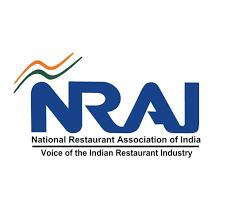The National Restaurant Association of India (NRAI), the country’s foremost body representing restaurateurs, is ramping up efforts to challenge the dominance of food delivery giants Zomato and Swiggy by embracing the government-backed Open Network for Digital Commerce (ONDC). In a strategic push, the NRAI aims to replicate its Bengaluru success story, where 20% of restaurant orders were channeled through ONDC, thereby breaking away from the stranglehold of high commission rates and alleged anti-competitive practices by the aggregators.
NRAI and the Federation of Hotel & Restaurant Associations of India (FHRAI), which represents over 60,000 hotels and 500,000 restaurants, have taken a strong stance against Zomato and Swiggy’s aggressive foray into quick food delivery services through their standalone apps, Bistro and Snacc. Concerns about these platforms go beyond their push for ultra-fast delivery. The two associations accuse the aggregators of masking consumer data, engaging in private labeling, and breaching the trust of their restaurant partners by abusing their dominant market position.
At a recent quarterly meeting with ONDC representatives and alternative food delivery platforms like Ola and Magicpin, the NRAI discussed strategies to expand ONDC’s reach nationwide. Sagar Daryani, president of NRAI and founder of Wow! Momo, expressed optimism about scaling ONDC adoption, citing its potential as a tool for democratizing the delivery sector. Zorawar Kalra, vice president of NRAI and founder of Massive Restaurants, echoed this sentiment, emphasizing the need for a more equitable system that empowers restaurants rather than burdening them with exorbitant fees.
One of the major factors driving NRAI’s shift toward ONDC is the disparity in commission rates. While Zomato and Swiggy charge commissions ranging from 15% to 30%, ONDC’s rates are significantly lower, at just 5% to 7%. This cost advantage, coupled with ONDC’s decentralized and transparent approach, makes it an attractive alternative for restaurateurs seeking relief from the high operating costs imposed by traditional aggregators.
The friction between restaurants and aggregators also stems from the issue of private labeling. FHRAI recently wrote to the Ministry of Commerce, alleging that Zomato and Swiggy are selling their own branded food items, effectively competing with the very restaurants they partner with. This practice, according to FHRAI, not only undermines the trust of restaurant owners but also distorts fair competition within the market.
Adding to the mounting resistance, NRAI is planning to approach the Competition Commission of India (CCI) to address alleged anti-competitive practices by the aggregators. Meanwhile, the association is also hosting a town hall meeting to engage restaurateurs in discussions about the impact of aggregator platforms on their businesses.
As the food delivery ecosystem in India evolves, ONDC represents a glimmer of hope for the restaurant industry, offering a cost-effective and transparent alternative. With NRAI and FHRAI doubling down on their efforts to promote ONDC, the stage is set for a shift in the dynamics of the food delivery landscape. Whether this will challenge the entrenched dominance of Zomato and Swiggy remains to be seen, but for now, restaurateurs are rallying behind a new way forward.
Source: Business Standard


